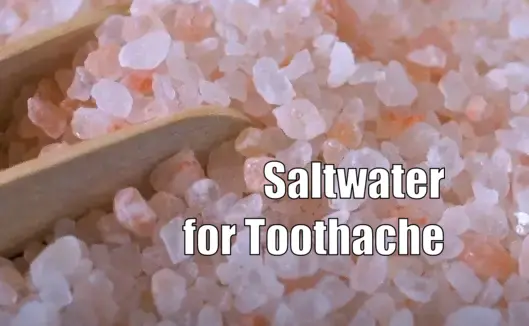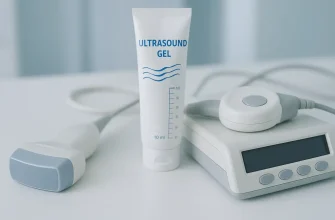Using saltwater for toothache is a natural remedy that has been practiced for centuries. The concept behind it lies in the properties of salt and its ability to reduce pain, inflammation, and infection. Saltwater, also known as saline solution, is an effective way to cleanse and disinfect the mouth, soothing the pain caused by a toothache.
How to Make Saltwater Rinse for Toothache?
To make a saltwater rinse for toothache, simply follow these easy steps:
- Start by boiling a cup of water to ensure it is clean and free from impurities.
- After allowing the water to cool down a bit, pour around half a teaspoon of either sea salt or table salt into the cup, depending on whichever is more easily accessible.
- Stir the salt in the water until it dissolves completely. You want to create a saline solution.
- Allow the mixture to cool down some more until it reaches a temperature that is suitable for usage. Take caution to avoid using it while it is still too hot, as this can potentially lead to more irritation or discomfort.
- Take a sip of the saltwater rinse and swish it around in your mouth for about 30 seconds to 1 minute. Spit it out gently, being careful not to swallow it.
- Repeat this process two to three times a day or as needed for relief from toothache.
Benefits of Using Saltwater for Toothache
Using saline solution as a mouth rinse for toothache can offer various advantages. Initially, saline acts as a natural germ killer, minimizing the amount of bacteria present in the mouth. This can aid in preventing additional infections and alleviating the intensity of the toothache.
Another benefit is that saltwater rinse can help reduce inflammation and swelling in the gums. This can provide relief from pain and discomfort associated with toothache.
The use of a saltwater rinse can aid in the healing process by improving blood circulation to the area that is affected. This can assist in quickening the recovery of damaged gum or oral tissue caused by a toothache.
Moreover, using a saltwater rinse as a remedy for toothache is both affordable and easily accessible. Many households already have salt at hand in their kitchens, allowing them to effortlessly prepare the rinse whenever necessary.
How to Use Saltwater Rinse for Toothache?
To use saltwater rinse for toothache relief, follow these simple steps:
- Begin by preparing the saltwater solution. Dissolve half a teaspoon of salt in eight ounces (240 ml) of warm water. It is important to use warm water as it helps to dissolve the salt more effectively.
- Gently swish the saltwater rinse around your mouth for about 30 seconds, making sure to reach the affected area. Be careful not to swallow the solution.
- Spit out the rinse and repeat the process two to three times a day or as needed for pain relief. It is recommended to use the rinse after meals and before bed to help keep the mouth clean and minimize discomfort.
- Avoid using excessive force while swishing the rinse to prevent further irritation to the affected tooth or gum area.
- After each use, thoroughly rinse your mouth with plain water to remove any residual salt taste.
Other Home Remedies for Toothache
In addition to using saltwater rinse, there are several other home remedies that can provide temporary relief from toothache. Some of these remedies include:
- Clove Oil: Clove oil possesses inherent abilities to numb and can effectively relieve toothache discomfort. Soak a cotton ball in clove oil and administer it to the affected tooth for a brief period of time.
- Garlic: Applying a paste made from crushed garlic to the affected area for a few minutes can help reduce toothache and inflammation, thanks to its antibacterial effects.
- Ice Pack: Using an ice pack on the side of your face can assist in numbing the region and decreasing both swelling and discomfort.
- Peppermint Tea: Peppermint tea possesses a refreshing quality that can provide relief for toothache discomfort. Prepare a serving of peppermint tea, allow it to cool down, and swirl it in your mouth for several minutes.
- Over-the-counter pain relievers: Ibuprofen, a type of nonsteroidal anti-inflammatory drug (NSAID), can be used to reduce inflammation and relieve toothache pain. It is important to adhere to the dosage instructions provided on the label.
When to See a Dentist
Although saltwater rinses may offer temporary relief for toothaches, it is crucial to understand when it is necessary to visit a dentist for an accurate diagnosis and appropriate treatment. Here are some signs that indicate it is time to schedule a dental appointment:
- Persistent or worsening pain: If your toothache continues or gets worse even after trying home remedies, it is a clear sign that there is an underlying dental problem that requires the expertise of a professional.
- Swelling or discharge: If you observe any swelling near the tooth in question or notice any discharge, it could be a sign of an infection that needs urgent dental attention.
- Prolonged sensitivity: If you experience prolonged tooth sensitivity to hot or cold temperatures, it may indicate a more severe dental issue like tooth decay or a fractured tooth.
- Loose or damaged tooth: In the event that you have a tooth that is not firmly in place or if a tooth becomes injured or broken, it is crucial to visit a dentist promptly in order to avoid additional harm and the possibility of losing the tooth.
Conclusion
It is important to keep in mind that a dentist is the most qualified individual to determine the reason behind your toothache and administer the necessary treatment. Neglecting the symptoms or solely relying on remedies at home can result in issues and exacerbate the problem. When uncertain, it is always preferable to prioritize safety and consult a professional dentist for proper dental care.









